How Many Calories There Are in Nuts and Seeds
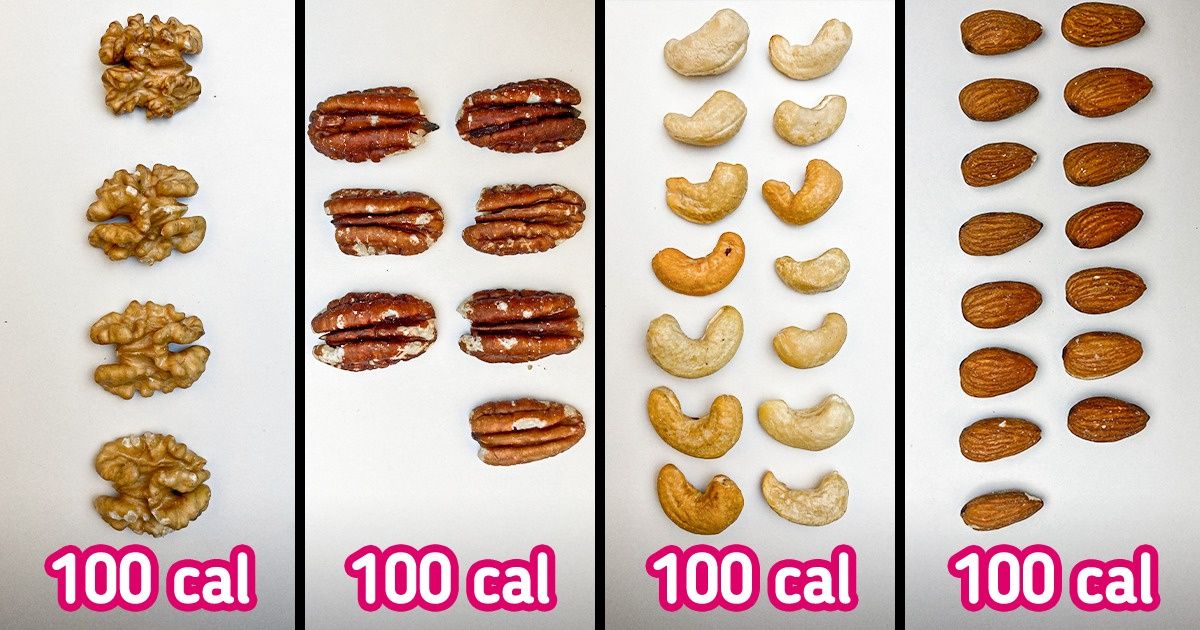
Oftentimes, we hear recommendations about how to replace unhealthy snacks like potato chips, for example, with something healthy like nuts or seeds. It’s true that nuts have many healthy elements. Moreover, many of them contain monounsaturated fats that are beneficial for our bodies. Nevertheless, this product can hardly be called dietary from the perspective of caloric content: 100 g of nuts contain from a quarter to half of the daily norm of calories depending on which calorie requirements you stick to.
5-Minute Crafts is offering you a calorie guide and look into the beneficial properties of the most popular types of nuts and seeds.
Almonds
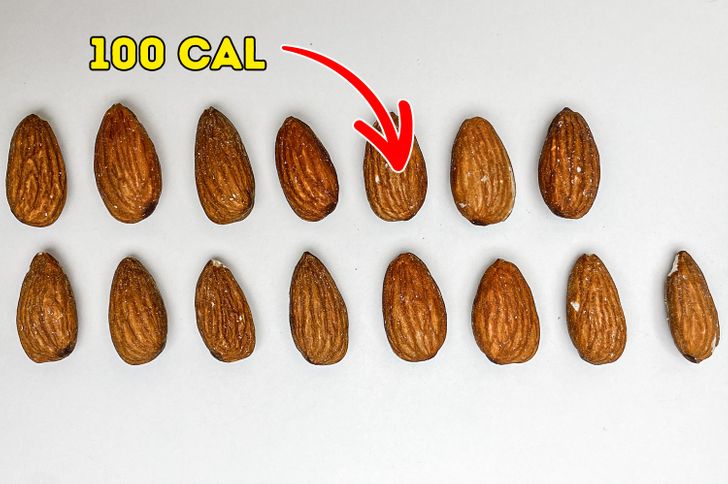
- The energy value of almonds (roasted, salty) is 667 cal per 100 g. 15 g of these nuts contain 100 cal.
- Almonds are very good for people who don’t drink a lot of milk. This type of nut contains a lot of calcium, which is necessary for strengthening bones.
- Apart from that, almonds are rich in vitamin E, which affects the skin positively.
Cashews
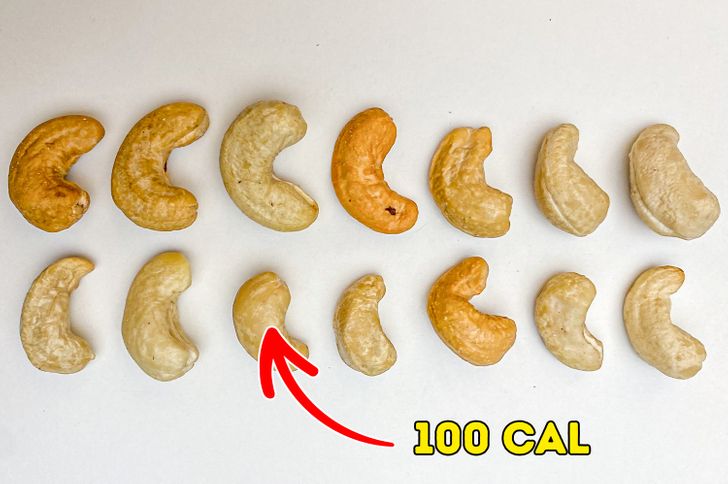
Walnuts
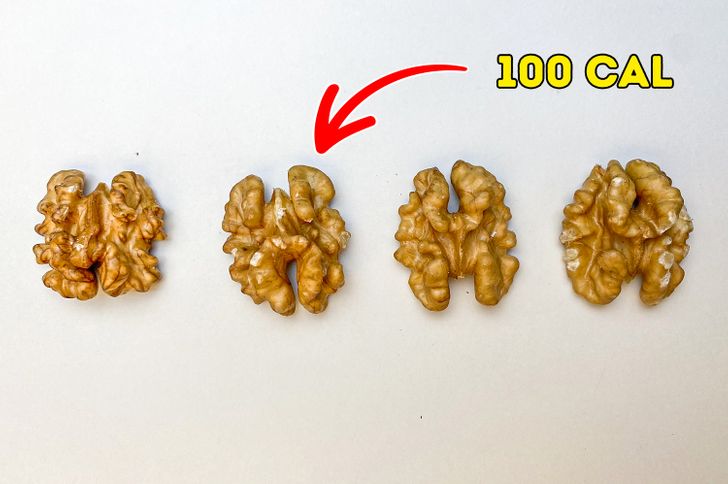
Macadamias
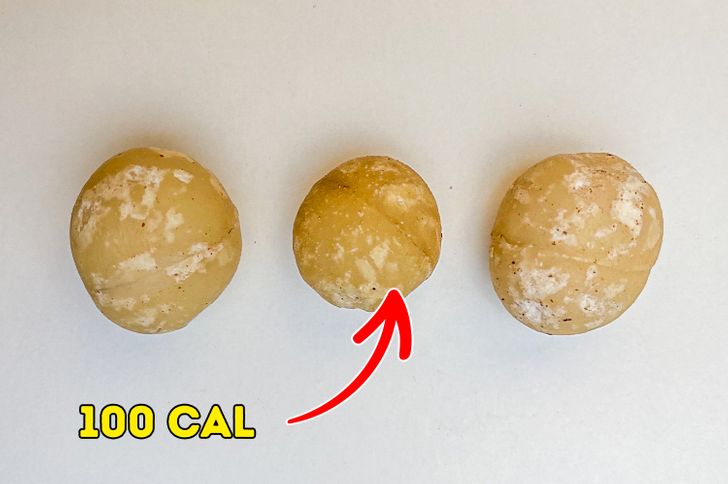
- The energy value of macadamias is 718 cal per 100 g. 13.9 g of these nuts contain 100 cal.
- They are rich in fiber and useful minerals, like magnesium, calcium, and potassium.
- Moreover, they contain a lot of phosphorus and iron, and there are B vitamins, including B6.
- Macadamias are toxic to dogs and can cause weakness and malaise.
Pecan nuts
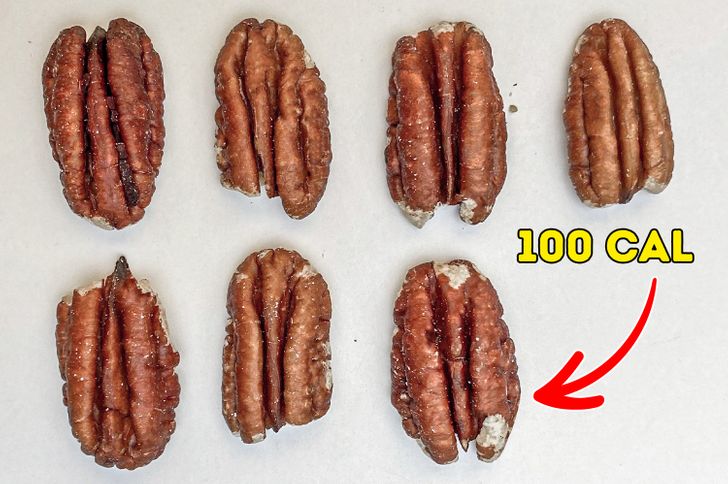
Peanuts
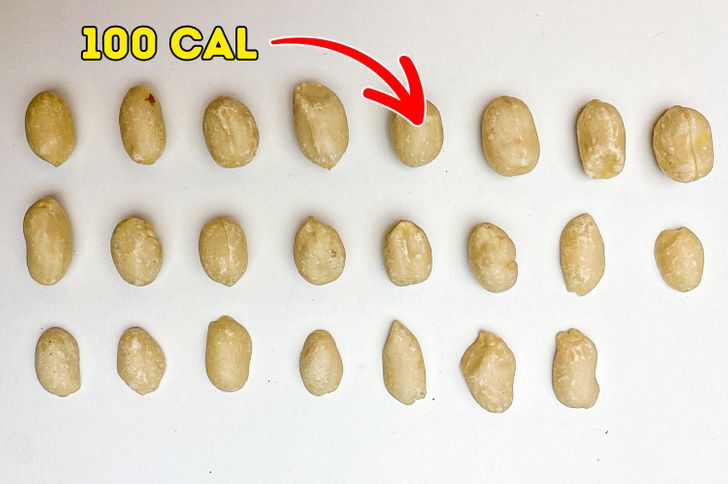
- The energy value of peanuts is 567 cal per 100 g. 17.6 g of this product contains 100 cal.
- Although peanuts are traditionally sold in stores along with other nuts, they are biologically beans and don’t grow on trees.
- These nuts are rich in vitamins A, D, and B. They are also high in magnesium and antioxidants.
Pistachios
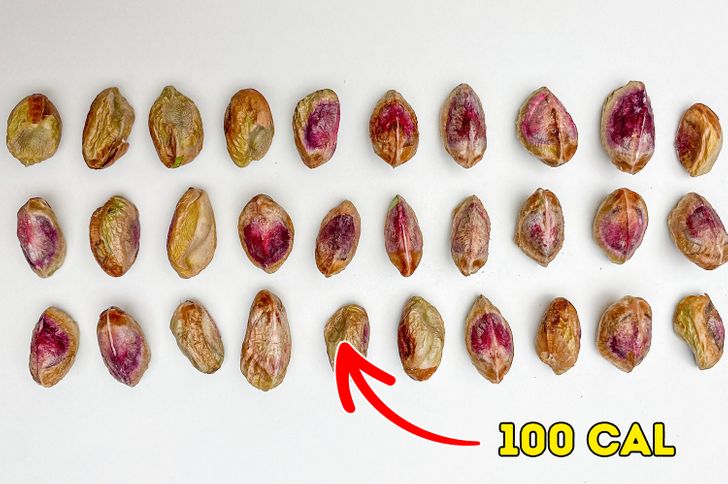
Pine nuts
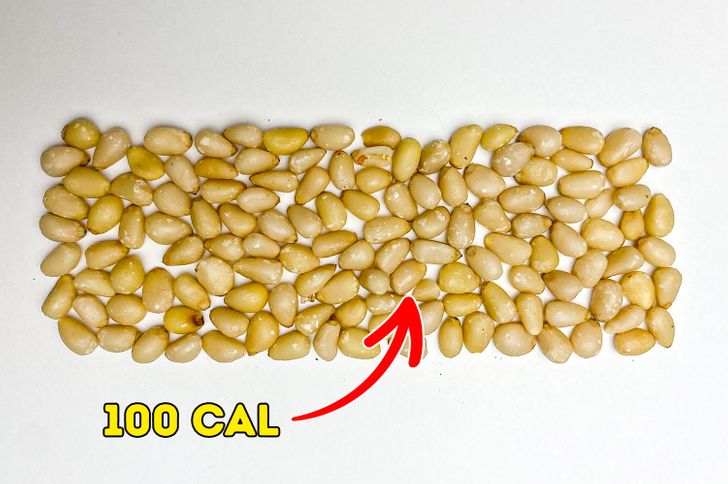
Hazelnuts
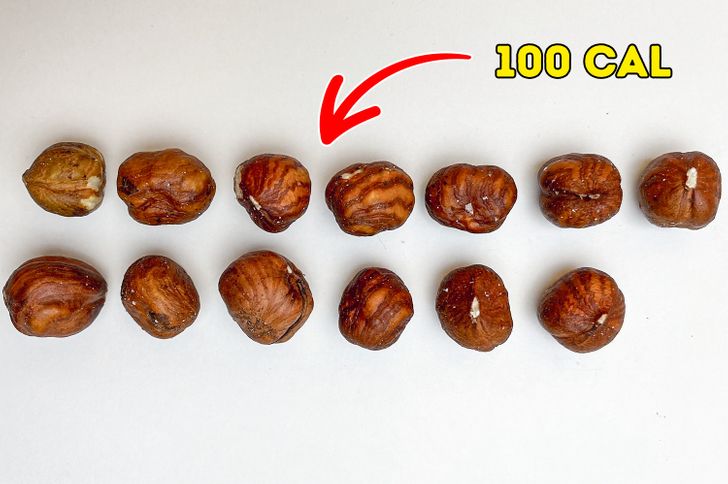
- The energy value of hazelnuts is 628 cal per 100 g. 15.9 g of this product contains 100 cal.
- These nuts are high in folic acid. It helps maintain healthy levels of the amino acid homocysteine, which is beneficial to health.
- Moreover, hazelnuts are rich in protein, vitamin E, manganese, and many other important nutrients.
Sunflower seeds
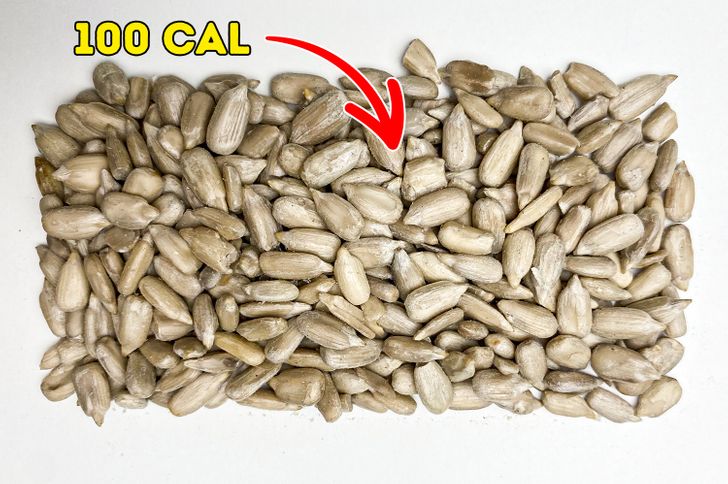
Pumpkin seeds
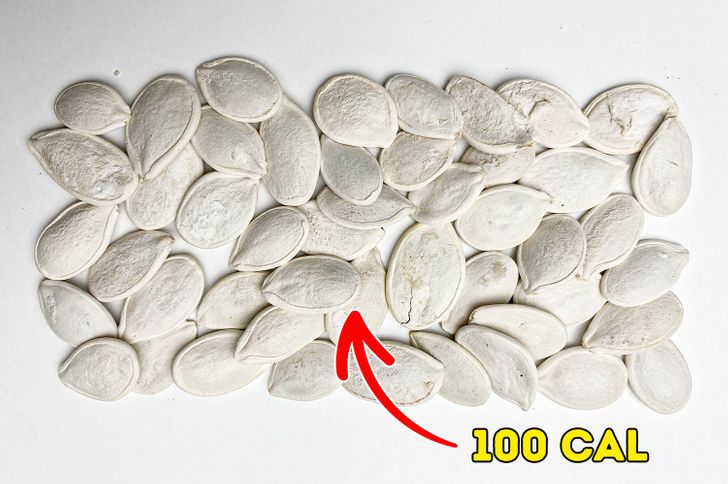
- The energy value of pumpkin seeds (dried, peeled) is 559 cal per 100 g. 17.9 g of the product contains 100 cal.
- Pumpkin seeds are high in calcium, magnesium, and potassium.
- Thanks to dietary fiber, they are good for digestion, and due to their high content of vitamin E and antioxidants, they have a beneficial effect on the immune system.
What to compare with
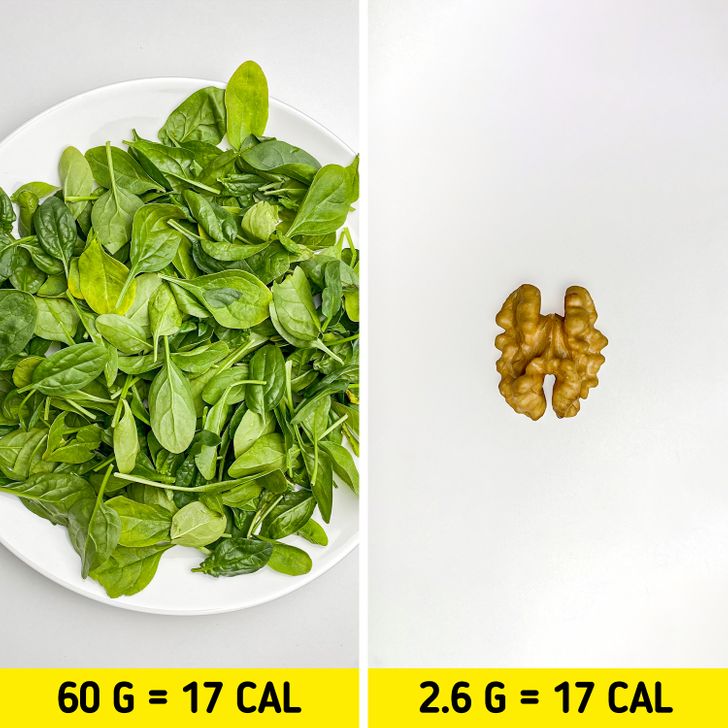
When it comes to limiting calories to fight excess weight, you can pay attention to the ratio of calories in different foods and nuts.
For example, 60 g of spinach contains 17 cal. The same amount (17 cal) is there in 2.6 g of walnuts. 60 g of spinach is a full plate, while 2.6 g of walnuts is just half of one walnut.
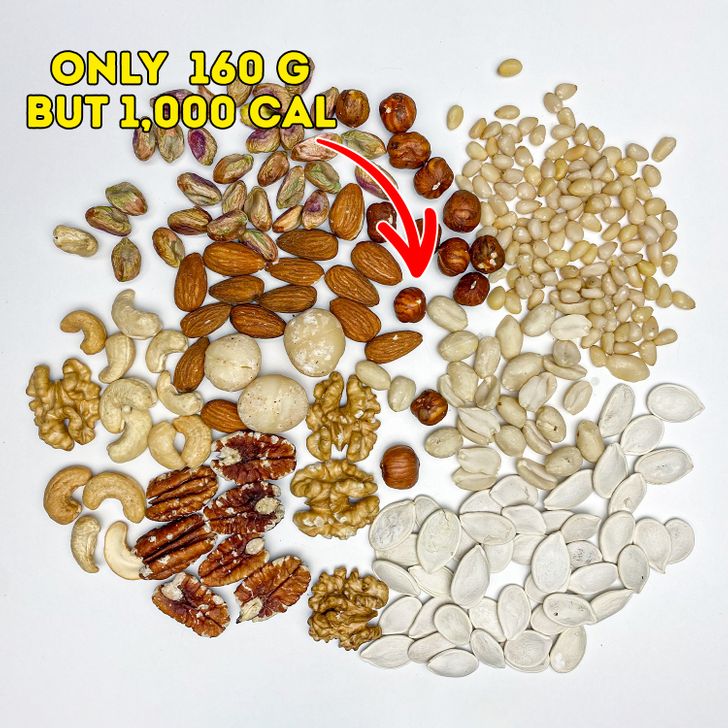
Nuts and seeds in the amounts shown in the photo (approximately a small plate) contain 1,000 cal. Many women limit themselves to 1,500 cal per day that’s why it’s necessary to take into account that this amount of nuts is 2/3 of the daily norm.
Of course, no one should have to give up on nuts because of their high caloric content. After all, seeds and nuts can be a perfect source of healthy nutrients. But in order to stay in good shape, one needs to remember that too many snacks like this can affect your body shape negatively.